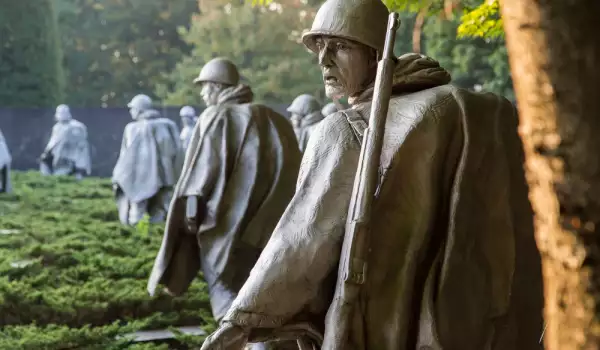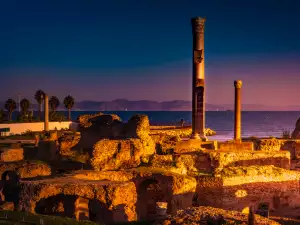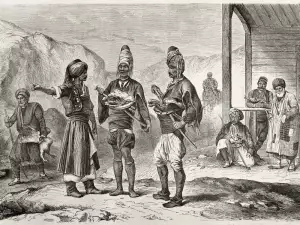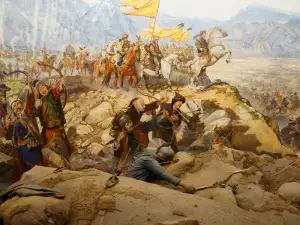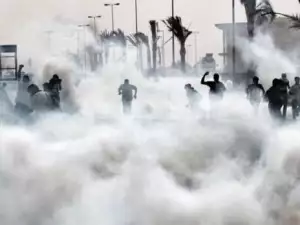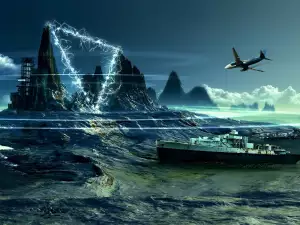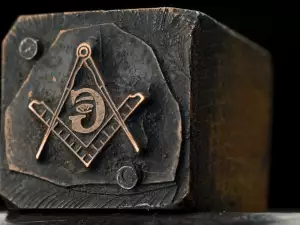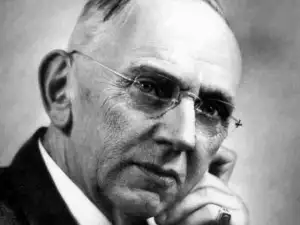Today, what the world knows about North Korea is that the dictatorial regime in the world's most closed country fills people's heads with hatred for the United States. How does propaganda manage to work so effectively?
Not everyone thinks about this question, but the reasons are mostly rooted in the collective memory of Koreans about the time of the Korean War when the US razed North Korea to the ground.
The Korean War has been in history for 67 years, but to this day it continues to define the lives and thinking of North Koreans. In practice, it has not yet ended, there is no peace treaty and a military truce has been in effect for more than 6 decades.
They call the war the first hot conflict of the Cold War, and it really is, but for Koreans, the war is first of all a terrible tragedy in which 20 percent of the entire population of North Korea died and that is a completely real fact.
There were even plans to end the war in a few days by dropping 30 to 50 atomic bombs and turning the border between North Korea and China into a radioactive impassable zone.
Unflattering historical truths have long been forgotten in the West, but in North Korea they also remember the mass massacres of hundreds of civilians fleeing the war.
Therefore, today one fifth of the population there serves in the army. This makes the North Korean army one of the largest in the world.
Wars can do many things to nations. What else has this war done to the people of North Korea and to its opponent South Korea?
To answer this question one must look at the history of the Korean War.
State of World Politics Before the Korean War
At the end of World War II, the Korean peninsula was occupied by Soviet troops in the north and American troops in the south. The Soviet Union declared war on Japan in 1945 at the very end of the world war.
5 years later, the former allies leave the peninsula. Then the communist dictator in North Korea, Kim Il-sung, began his invasion of the south along the 38th parallel. His goal is to conquer South Korea, unify the two countries and turn them into one communist state.
There are reports that Stalin agreed with the plan. China and the Soviet Union, which are supporters of North Korea, are sending military advisers, weapons and money. Direct involvement with troops was refused by the Soviet Union due to fears of a clash between the two superpowers, as the US sent troops, along with Britain, Australia, Canada and other countries, to aid South Korea.
On June 25, Kim Il-sung's troops cross the 38th parallel, which separates North Korea from South Korea. The war begins with an attack by the North Korean army because Kim Il Sung believes that only through war can he impose the communist dictatorship in the south and unite the two Koreas.
The UN decides to help the South, although the Soviet Union sabotages its work and prevents the enforcement of the decisions. The war is going according to plan for North Korea and its armed forces have complete superiority over South Korea's.
The UN Security Council passes a new resolution calling for an immediate end to the war and the withdrawal of the North's troops, with India, Yugoslavia and Egypt abstaining and the Soviet Union not attending the meeting at all. It was decided that the US would send air and naval forces to the aid of South Korea.
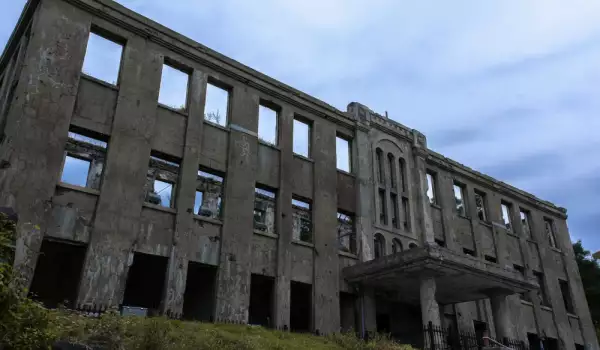
The UN intervenes with a proposal for joint action, using the organization's flag against North Korean troops. Initially, US aid was completely inadequate and American soldiers were pushed to the northwestern part of the peninsula, where they built a fortification in the so-called Pusan Perimeter. The defensive line had difficulty holding off the attacks until serious reinforcements arrived.
And although the first clashes were entirely in favor of North Korea, which overcame South Korean resistance and captured Seoul, the United States did not give up and President Truman gave Commander-in-Chief General MacArthur complete freedom of action.
The US launches a naval attack on the port city of Inchon and this turns the tide of the Korean War. Communist forces begin to retreat, North Korean fighter jets are gradually destroyed, and bombs begin to rain over North Korean cities.
The Americans quickly captured Seoul and continued north to the 38th parallel. The North Korean army is retreating disorganized. A little later, the US military entered Pyongyang.
All these developments are being watched with concern by China. The leader Mao Zedong realizes that a united Korea under American influence will become a springboard for American nuclear weapons against China. Mao is not going to allow this.
The Americans decided to sever the link between North Korea and China by taking control of the Yalutcian River area, but were met by Chinese troops. Although Mao says these are volunteers fighting for the freedom of North Korea it is clear that this is a red Peking National Guard.
The US and UN are defeated, but the Chinese quickly withdraw. American warplanes are attacked by China's jet fighters, which surpass the American ones in power and maneuverability. Later it became clear that these were Soviet MiG-15s with Russian pilots.
As they retreated, the Americans destroyed the infrastructure to keep it out of Chinese hands and abandoned the civilian population to their fate in harsh winter conditions. This was the greatest defeat of the Americans at the beginning of the twentieth century.
The Chinese launched a second massive military offensive, sweeping away the US and UN forces. General MacArthur requests permission to use nuclear weapons, but the request is denied. He openly criticized the president, but was eventually retired and replaced by General Ridgway.
Hostilities have not ceased, although attempts at negotiations have been made since 1951. The change came in 1952, when Dwight Eisenhower won the presidential election. He came to power on an election campaign promising an end to the Korean War and rejecting the proposal for new military operations upon taking office.
In 1953, a breakthrough was finally made in the peace negotiations and an agreement was signed to cease fire and exchange prisoners of war.
A final peace treaty was never signed and the two Koreas are still in an undetermined status, that is, they are practically in a state of war.
After the end of the Korean War
The Korean War was a regional armed conflict between the divided north and south of the Korean peninsula, but a factor in its outbreak was the confrontation between the two main powers of the cold war - the Soviet Union and the United States. The war contributed to the division and tension on the peninsula, which is still a fact today.
South Korea gradually took a democratic path and became an advanced economic country after rejecting the neo-fascist regime.
North Korea is becoming a closed totalitarian state with unofficial monarchical rule similar to the pharaohs of ancient Egypt.
The question of the future of the Korean peninsula is still on the agenda and the unification of the two parts of the peninsula is still alive as an idea today, if the unified country follows a democratic path of development.
